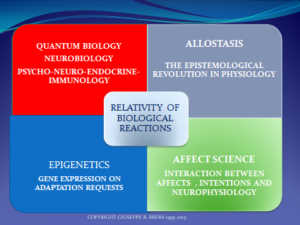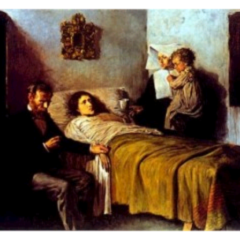
The paradigm of Medicine,”Medical Education” and medical science have changed. These are the results of the two historic World Congresses promoted by Ambrosiana University, in streaming, concluded on June 23 under the patronage of the European Parliament and the Pontifical Academy of Sciences.
The Paradigm Change of Medicine: the epistemological and scientific basis of Person-Centered Medicine
(21-22 June)
and
Person-Centered Medicine: the medicine and health paradigm change in medical science and medical education
(23 June)
The conference was attended by scientists who have made a significant contribution to the paradigm shift as Giuseppe R.Brera, author of the theory of Person-centered Medicine and its teaching, taught to doctors at the Medical School of Milan since 1998, and pioneers of interactionism in their respective research areas such as Robert Cloninger (Psychobiology) Moshe Szyf, (Epigenetics), Claudio Violato (Medical Education), Lee Sun Wong, (Sterling and Heyer’s theory of allostasis), Jean Georges Maestroni (psycho-neuro-endocrine-immmunology), Piermario Biava, (Epigenetic reprogramming), George Christodoulou (World Federation of Mental Health), Vincenzo Di Nicola, President of the World Association of Social Psychiatry and Roy Kallivayalil ( Person-centered and Social psychiatry), Philippe Ney (Bioethics of life)Richard Fiordo (Health communication).
The conferences highlighted the urgent need to adapt to the current paradigm of Person-Centered Medicine, interactionist and teleonomic, the training of the doctor, public health policy and research. The basic sciences and the humanities, in fact, have allowed to reformulate in a personalistic sense the concept of human nature and health that appears to be the result of existential choices, which arises from the interpretative sense of the possibilities of experience that determine the quality of life. In fact, 95% of diseases are 95% lifestyle dependent and the remaining 5% on genetic dominance. Health, when it is not a biological emergency or a genetic disease, as documented by Professor Brera, who presented the theory, is consequently related to the symbolic work of interpretation of possibilities that interacts with biological variables, through the allostasis-revolution of physiology still unknown to most-theory of Peter Sterling and Joe Heyer- through the immunological and epigenetic psycho-neuro-endocrine modulation that allows adaptation to the change required in relationships with themselves, the human and physical environment. If truth for one’s own well-being and that of others and positive affections are the interpretative code of possibilities, health benefits. The great epistemological revolution of the indeterminist Person-Centered Medicine which has buried the mechanistic, determinist positivism, comparable only to the quantum revolution of physics, is given by the evidence of the multidimensional and multi-factorial origin of diseases that draws freedom and responsibility to the individual for quality of life, first of all of a spiritual nature, as founded on the truth or falseness of the meaning given to experience. This discrimination is the mother of moral thought-which is also the purpose of scientific research and philosophy. Medicine thus appears reformulated as a “Maieutic semiology of the person ” in whom illness appears as an event of life, signifying the work of man towards a harmonious unity of spirit, mind, and body, reminiscent of Aristotelian philosophy and the epistemological model of traditional Chinese medicine.
Illness appears a form of human nature whose substance hides therefore the unconscious or conscious teleonomic work of man and woman to realize themselves as a person, that is, the meaning of being men or woman, a concept absent in Aristotle, and in Chinese cosmology but of Christian derivation. The concept of health reformulated by MCP that dates back to 2011, already presented to WHO by Prof. Brera for its necessary adoption, must be redefined today in an interactionist and teleonomic sense as “Choosing the best possibilities to be the best human person”, also political program. The paradigm of Person-Centered Medicine, ethically based on Hippocratic values and irrefutably on the progress of the basic sciences and the humanities thanks to Kairology, should be the foundation of clinical medicine and the selection and training of physicians as an object of update in continuing education and the foundation of health policy. The second congress highlighted how the selection of students in medicine through cognitive tests, does not meet the requirements today required by the clinical method, especially the doctor’s empathy and the ability of “Diagnosis of the person”. They should be replaced by multi-dimensional assessments of attitudes as Prof.Brera has proposed. Unfortunately today medical and continuing education is still linked, except since 1999 in the Medical School of Milan of thAmbrosiana University, to the fragmentary separation in the clinical method between biology, quality of life, in the relationship with the physical, family, and work environment. Fragmentation dominates the research in the pathogenesis of clinical pictures, and medical education, with the omission of variables.
This only bio-technological orientation, which does not correspond to current knowledge, causes serious damage to the health of the population and distances the person from a sense of responsibility for the quality of life, which arises from the meaning given to experience. This approach is particularly dramatic in a negative sense with adolescents, closed by dualism medicine and psychology, naturally led to answer the great questions of existence: love, truth, and beauty. This is why family doctors and pediatricians must train in person-centered medicine and medical counseling.
The goodness of the epistemological revolution has been confirmed by research that has documented how the training of doctors in Person-Centered Medicine leads to a huge saving in suffering and costs, for the decrease in prescriptions of drugs, specialist visits, and hospital admissions. Therefore the administrators of public health, have today the great moral responsibility to adapt the health system to Person-Centered Medicine, which directs to prevention and health education, for the good of the population. Its omission, born from ignorance, was responsible for the worldwide slaughter by COVID-19 for the absence of primary prevention strengthening natural immunity and early care. The removal of family members from hospitalized patients is one of the inhuman consequences of the pandemic of ignorance among doctors.
The problem appears dramatic because Medicine is developing in a schizophrenic way by dissociating between basic sciences that have documented interactionism and refuted Cannon (homeostasis) and Selye (mechanistic theory of stress) and the humanities that introduced the teleonomy of human nature and together changed the concept of human nature and health.
Instead, the orientation of Medicine is increasingly bio-technological, only valid if it remains an instrument and not a meaning in which the person becomes an object of techniques and profit. The sense of Medicine and the interpersonal dimension of the doctor. patient clinical relationships are irreplaceable.
The proceedings of the Congress are available without charge to the editorial department of Ambrosiana University: dipedit@unambro.it
We inform of the Summer Course in Person-Centered Medicine and Clinical Method centered on the person, addressed to doctors and teachers to be held from 4-9 September 2023 in Viareggio Ex-students, teachers of the Ambrosiana University, WASP and PCMIC members enjoy a 50% reduction on the registration fee. Participation in the course is valid for the updating of diplomas. Detailed information on www. scuolamedicamilano.it
Request for proceedings free of charge
to the Editorial Department of Università Ambrosiana
dioedit@unambro.it
JMazethes Managing Editor
Copyright Università Ambrosiana 2023
